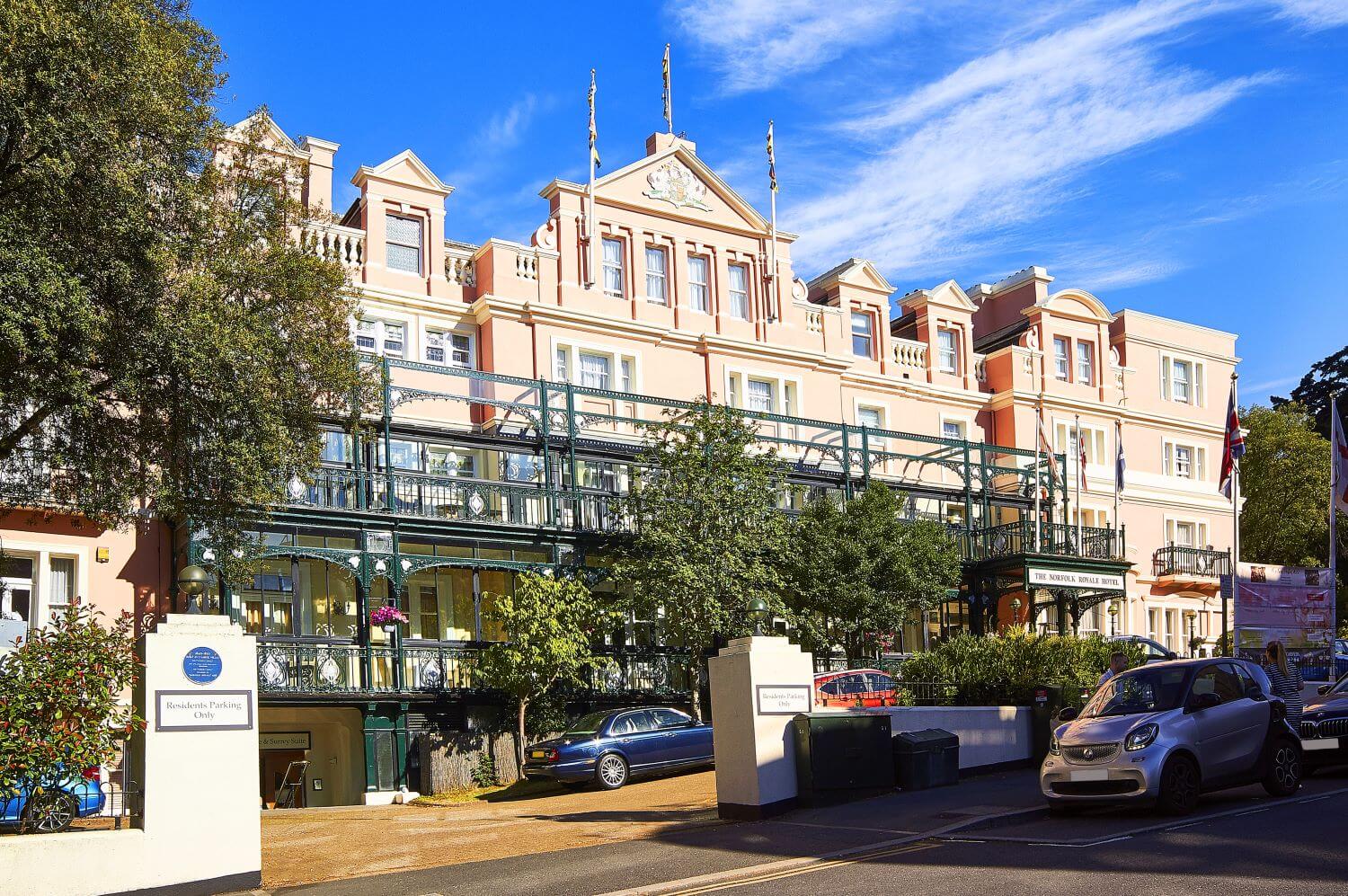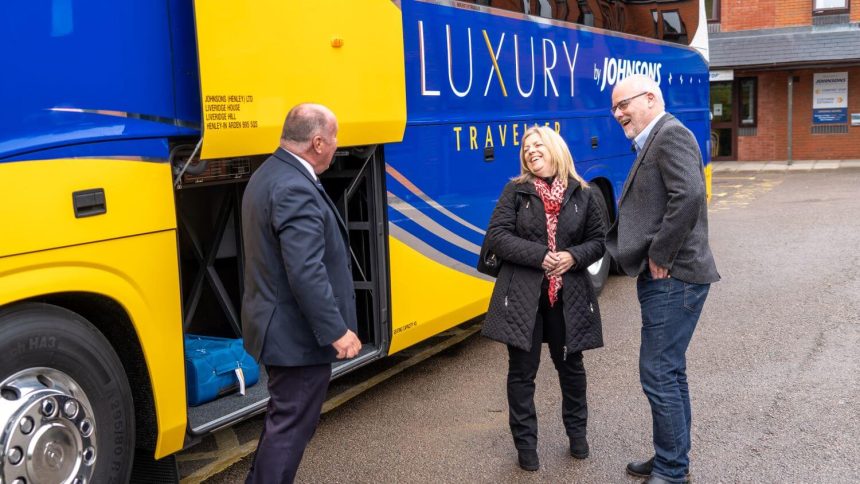Note: since publication of this feature in the May edition of routeone, Bournemouth, Christchurch and Poole has voted to introduce a tourism tax.
Tourist taxes are something with which coach operators travelling abroad will be familiar, given that they are common in some parts of Europe. However, the idea is gathering steam in the UK and one stakeholder believes it could become standard over the next four years.
Such a tax cannot currently be directly introduced by national or local government in England, although Manchester last year became the first city in the UK to start a similar form of charging via an “Accommodation Business Improvement District” (ABID). In this legal workaround, local authorities and local business partnerships can, via a ballot, decide to introduce levies.
This can take the form of a charge per night per hotel room, which is payable by the establishments. These ABID levies will often be passed on to the visitor by the hotel. Business Improvement Districts are well-established, with around 300 throughout the UK, but what is newer are ABIDs and levies aimed at tourism and accommodation.
If suddenly tourist taxes are put in, it’s the operator that has to bear the cost of that – Peter Bradley
Meanwhile, legislation is being considered by the Scottish Government to allow local authorities to directly add a tax on overnight accommodation. Edinburgh City Council is one which is looking to introduce such a levy. It has been talked about by the Welsh Government, although plans are less developed there.
Bournemouth charge from July?
Members of the Bournemouth, Christchurch and Poole (BCP) ABID were balloted last month on whether to introduce a £2 per room or unit (plus VAT) fee levied on guests staying overnight. The results of the vote will be made known on 14 May and, if accepted, will be enforced from 1 July. This would only be collected by hotels with a rateable value of more than £40,000, so around 70 hotels in the area would be eligible.
The scheme is part of a business plan decided on by the accommodation-providers. The partnership expects to be able to generate around £2 million per year over five years to be funnelled into things such as marketing to boost visitor numbers, securing major events, research and attracting outside investment.

With coach tour operators generally having quoted prices for the whole year early in 2024 at the latest and having already taken bookings for summer trips, the lack of notice around any BCP levy could cause consternation.
This is the main concern of UK Coach Operators Association Managing Director Peter Bradley, who says many operators were unaware of the Manchester scheme until it was too late. He says: “There needs to be consultation in advance of doing it and that needs to be with a clear timescale.
“Obviously, if operators have put their brochures to print up to a year before some of those holidays take place, most of them don’t want to change their prices afterwards. Therefore, if suddenly tourist taxes are put in, it’s the operator that has to bear the cost of that and it’s quite a large outlay for them.”

Barry Cobb, Tours Manager at Johnsons Coaches, which is advertising multiple overnight packages in Bournemouth in July and August, says such a tax would be “quite a concern”.
He adds: “I just feel that a £2 per night tax without warning is ill-thought-out and smacks of a desperate, money-grabbing action by councils who are struggling with their finances. Whilst tourist taxes are common on the continent, they are something we know about in advance and can take into consideration at the tour costing stage.”
Barry says his business would probably not pass on any cost to the customer. He adds: “I fail to see how any operator, not just Johnsons, can simply afford to lose something like £250-£300 off their bottom line on a tour in year one without warning.”
Cash-hungry authorities start seeing a tourism tax as a way of raising revenue rather than helping the tourism industry – Robert Shaw
However, the Director of Barnes Coaches, which operates overnights to Bournemouth, seems less disturbed. “An extra £10 per passenger won’t affect numbers,” says Matt Barnes. “When it happens abroad, we just build it into the cost of the holiday we sell.”
In response, BCP ABID admits the late notice is “not ideal” but claims it has resulted from BCP Council ceasing funding for tourism and destination marketing in March, a move raised in November 2023 and only confirmed in February. A spokesperson adds: “We will work closely with coach operators, and we can either collect the tourism levy direct from their guests on arrival or they can collect the monies from their guests and pay this before arrival.”
‘False economy’
When it comes to the BCP plan, Alfa Leisureplex Group will be one of the affected businesses. One of its 24 hotels — via subsidiary Leisureplex Hotels — is the Norfolk Royale in Bournemouth, which would be above the qualifying rateable value for paying the levy. Emma Russell, Managing Director of both that and the parent company’s coaching arm of Alfa Travel, is totally against the plans.
“We take hundreds of thousands of people on holiday every year,” says Emma. “That’s vital visitors to local economies. We bring them at times of the year that are perhaps outside their main holiday season. Some of the tourist taxes that are being talked about are several pounds a night, which would have to be packaged into the price. Personally, I think it’s a false economy of the councils to view this as a good idea.
“We have a hotel in Bournemouth, we have a hotel in Weymouth. If they see a tourist tax in Bournemouth, the customer is most probably going to go to Weymouth, because it could make £20-per-holiday difference and they won’t see the benefit of what the council is using it for. As an industry, I don’t know whether our voice is being heard.”
‘Cash-hungry authorities’
Another against the introduction of tourist taxes and ABID levies is Robert Shaw, Chair of the Coach Tourism Association. His main gripe is that he believes tourist taxes will rise sharply very quickly as he has seen abroad.
Robert, who is also Director of operator Harry Shaw, says: “From my experience of looking at tourism taxes throughout Europe, they start off at low levels and become quite extreme in a very short timeframe. And, of course, cash-hungry authorities start seeing a tourism tax as a way of raising revenue rather than helping the tourism industry.
“I think you have to remember that most coach holiday clients have a fixed budget on anything to spend on a trip and anything that eats into that is going to affect sales. We should really let the public know what’s happening; I’m pretty certain the vast majority of them would not be in favour.”

Robert also says he cannot see the funds being used to benefit the coach sector. Another who is dubious about that is Kevin Mayne, Operations Director of Moray-based Maynes Coaches, although he can see benefits potentially if the money is well spent.
He says: “Unfortunately, Edinburgh City Council has seen a boom in tourism and coach tourism and, instead of backing the greenest form of group travel, they see us as a golden goose. What’s needed is investment in infrastructure to meet coaches head-on and welcome us.
“Will this push people away? No, look at Venice, Rome, Paris or Berlin — they pay the fees, it’s part of the global post-pandemic tourism boom. Yes, it will push the costs up, but I feel it will not send groups away. But with the fees, it should bring proper infrastructure for our industry — I hope and dream…”
Present and potential schemes
Manchester’s City Visitor Charge is set at £1 (plus VAT) per room per night. Its aim is to boost marketing, drive overnight stays, improve guest welcome and street cleanliness, secure events and conferences and help “futureproof” the city’s accommodation sector. It raised £2.8 million in its first year. Liverpool also has an ABID and charges a fee per accommodation provider, although it is based on a percentage of rateable value and isn’t directly charged to the guest.
As well as Edinburgh and BCP, other areas reported to be looking at charging guests a per-night fee include Cambridge and Moray. The spokesperson for BCIP ABID says up to 20 destinations are exploring the option.
Possible benefits
While there is general negativity towards the idea from the industry, Peter is more open-minded as long as there is adequate consultation and warning. “Whilst obviously it’s an added cost to the coach operators and tourist operators, I think under certain conditions it is acceptable,” he says.
“I think it has its place, but those who receive it shouldn’t be afraid of being open and transparent in what it’s being used for.” He believes that, if some of the money were put into improving facilities for drivers or visitors, that operators may greet the prospect more warmly.
“I think what needs to happen is, once it’s agreed to come in, that there is some open dialogue and engagement about what the money is used for. If it just disappears into the coffers of the local authority, I’ve got more of a concern.”



























